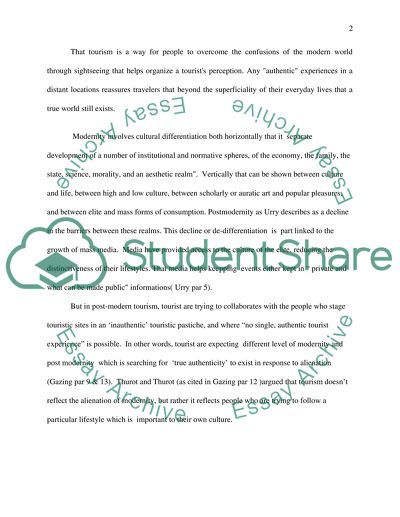Cite this document
(“Post-Modern Tourism Essay Example | Topics and Well Written Essays - 3000 words”, n.d.)
Post-Modern Tourism Essay Example | Topics and Well Written Essays - 3000 words. Retrieved from https://studentshare.org/sociology/1525681-post-modern-tourism
Post-Modern Tourism Essay Example | Topics and Well Written Essays - 3000 words. Retrieved from https://studentshare.org/sociology/1525681-post-modern-tourism
(Post-Modern Tourism Essay Example | Topics and Well Written Essays - 3000 Words)
Post-Modern Tourism Essay Example | Topics and Well Written Essays - 3000 Words. https://studentshare.org/sociology/1525681-post-modern-tourism.
Post-Modern Tourism Essay Example | Topics and Well Written Essays - 3000 Words. https://studentshare.org/sociology/1525681-post-modern-tourism.
“Post-Modern Tourism Essay Example | Topics and Well Written Essays - 3000 Words”, n.d. https://studentshare.org/sociology/1525681-post-modern-tourism.


